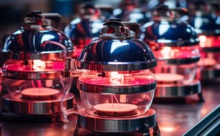内容导航:
happy glass攻略251
回答如下:这个问题比较模糊,可能指的是多款游戏中的其中一款。以下是几个可能的答案:
1. Stickman Hook:这是一款跑酷类游戏,玩家需要控制一个斗笠男孩在不同的关卡中通过滑动棍子进行跳跃、荡秋千等动作,最终到达终点。
2. Flippy Knife:这是一款简单的休闲游戏,玩家需要通过滑动棍子控制刀子的飞行轨迹,让它在空中翻转并落在靶子上。
3. Happy Glass:这是一款物理类解谜游戏,玩家需要通过滑动棍子来引导水滴进入玻璃杯中,完成不同的任务。
4. Mr. Bullet:这是一款射击类游戏,玩家需要通过滑动棍子来控制枪手的角度和力度,射杀不同的敌人。
以上只是几个可能的答案,如果问题描述更加具体明确,我可以提供更加准确的回答。
快乐夏日happy攻略
happy lane是LTD.旗下自主婴儿时尚品牌,范围涵盖新生儿用品及婴幼儿服装等多个品类,通过独特的设计和过硬的品质,致力于为0-7岁孩子和妈妈提供实用舒适的产品解决方案。
在1990年首次推出后,HAPPLANE凭借兼具舒适的设计和优良的品质,迅速成为韩国婴儿时尚品牌的代表。
happypuzzle通关教程
Unit 1 How can I get there ?
一、主要单词:
museum博物馆
bookstore书店cinema电影院turn 转弯
hospital医院
left向左
post office 邮局 science科学
right向右 straight笔直地crossing十字路口
二、习惯语搭配:
post office邮局 science museum科学博物馆
pet hospital宠物医院 Italian restaurant意大利餐馆
Beihai Park北海公园 Palace Museum故宫博物院
go straight直走 near the park在公园附近
in front of…在…前面 turn right/left右/左转
on Dong fangStreet在东方大街上 next to挨着
三、惯用表达式:
Excuse me 打扰一下
Follow me, please!请跟着我!公主女王换装游戏攻略
Unit 2 Ways to go toschool
一、主要单词:
by乘
bus公共汽车
on foot步行
plane飞机
taxi出租车
ship(大)船
subway地铁
slow慢的
stop停下
always 总是
usually 通常
often经常
never 从来不
train火车
二、习惯语搭配:
by bike/bus/plane/subway/train/ship/taxi/ferry
骑自行车/乘公共汽车/飞机/地铁/火车/船/出租汽车/渡轮
take the No.57 bus乘57路公共汽车
pay attention to注意
traffic lights 交通信号灯
look right向右看 be far from…表示离某地远
cross the road横穿马路 traffic rules交通规则
get off下车 at home在家
get to到达 get on 上车
on foot步行 slow down慢下来
三、惯用表达式:
Wait!等一等! Hooray太好了!
I see. 我明白了。
Go at a green light 绿灯行
Stop at a red light 红灯停
Wait at a yellow light 黄灯等
Unit 3 My weekend plan
一、主要单词:
tomorrow明天 supermarket超市 film电影
tonight在今晚 evening晚上 trip旅行
next week下周 comic连环画杂志 word单词
dictionary词典 post card明信片 visit拜访
二、习惯搭配:
take a trip去旅行
go for a picnic去野餐
go to the cinema去看电影
learn to swim学习游泳
go to the supermarket去超市 get together 聚会

go ice-skating去滑冰 make a snowman堆雪人
see a film看电影 make mooncakes做月饼
read a poem朗诵一首诗 this weekend这周末
Renmin Park人民公园 next week下周
next Wednesday下星期三
this morning/afternoon/evening今天上午/下午/晚上
visit my grandparents看望我(外)祖父母
三、惯用表达式:
What about you?你呢?
Here they are!它们在这儿!
Sounds great!听起来很棒!
Have a good time!玩得开心
Can I help you?我能帮助你吗?
You too.你也是
Unit4 I have a pen pal
一、主要单词:
studies学习 puzzle谜 hiking远足
二、习惯搭配:
read stories读故事 do kung fu练功夫
fly kites放风筝 play the pipa弹琵琶
play sports进行体育活动
climb mountains爬山
listen to music听音乐
sing English songs唱英文歌
on a farm在一个农场里 live in…住在···
write an email to…给···写一封电子邮件
on the playground在运动场上
三、反义词或对应词:
near(近的)▬far(远的) fast(快的)▬slow(慢的)
east(东)▬west(西) north(北)▬south(南)
because(因为)▬why(为什么) left(左)▬right(右)
same(相同的)▬different(不同的)
here(这里)▬there(那里)
get on(上车)▬get off(下车)
近义词:
see you▬goodbye sure▬certainly▬of course
Unit 5 What does he do?
一、重点单词:
factory工厂 postman邮递员 police officer警察
fisherman渔民 scientist科学家 pilot飞行员
coach教练 businessman商人;企业家 worker工人
二、习惯搭配:
go to work去上班 study hard 努力学习
stay healthy保持健康 go home 回家
lots of 许多 go to the camp去度假营
be good at…擅长···
by car/bus/bike/plane/boat乘小汽车/公共汽车/自行车/飞机/船
三、惯用表达式:
Cool!酷! What about you?你呢?
That’s nice.那真好。 I see.我明白了。
四、一些由动词变化而来的职业名词:
teach—teacher clean—cleaner sing—singer
dance—dancer drive—driver write—writer
act—actress engine—engineer
TV report—TV reporter act—actor art—artist
Unit 6 How do you feel?
一、主要单词:
angry生气的 afraid害怕
worried担心的;发愁的
happy高兴的 more更多的
see a doctor看病 breath呼吸(名词)
count数数(动词) sad难过的
wear穿 deep深的
二、习惯搭配:
feel angry/ill/happy/sad感觉生气/不舒服/高兴/难过
be afraid of…害怕··· count to ten 数到十
be angry with…与···生气 see a doctor看病
take a deep breath深深吸一口气
do more exercise做更多的运动
wear warm clothes穿暖和的衣服
chase the mice追赶老鼠
drink some drinks喝一些饮料
have some popcorn吃一些爆米花
三、惯用表达式:
Here you are.给你。
Wait for me.等我一下。Yum!太美味了!
happyglass41关怎么过
第一步:First, chop up the strawberrie(首先把草莓切碎)
第二步:Then take two mangoes and chop them up(然后取两个芒果,把芒果也切碎)
第三步:Again, take two kiwis and chop them up(同样的,取两个猕猴桃把它切碎)
第四步:Take two more bananas, cut them into pieces and add blueberries if you like(取两根香蕉切成段状,如果你喜欢的话,还可以加点蓝莓)
第五步:Next, pour some honey into a bowl, squeeze in some lemon juice and stir well(接下来,碗中倒入适量蜂蜜,挤入一些柠檬汁搅拌均匀)
第六步:Will make good salad juice, pour into the fruit, toss evenly, fruit salad is ready(将搅拌好的沙拉汁倒入水果中翻拌均匀,水果沙拉就做好了)
Today ,I did a fruit salad by myself. First: wash different fruits and peel them. I used two apples、two bananas、 one watermelon and a pineapple. Second:Cut them and mix them up. I put them on a glass plate.
Third:Add salad cream and stir . Finally: enjoy it! It tastes very delicious and I’m so happy.
今天,我⾃⼰做了⼀份⽔果沙拉。第⼀:洗不同的.⽔果和果⽪。我⽤两只苹果,两只⾹蕉,⼀个西⽠,⼀个菠萝。⼆:切和混合起来。我把它们放在玻璃板上。
第三:加⼊沙拉酱搅拌。最后:享受它!味道很鲜美,我很⾼兴。
happy glass
英语反义词
big(大的)—–small(小的)bad(坏的)—–good(好的)
bright(明亮的)—–dark(黑暗的)black(黑的)—–white(白的)
beautiful(美的)—–ugly(丑的)cold(冷的)—–hot(热的)
cool(凉爽的)—–warm(温暖的)come(来)—–go(去)
cry(哭)—–laugh(笑)clever(聪明的)—–stupid(笨的)
different(不同的)—–same(相同的)difficult(难的)—–easy(容易的)杀手6 圣诞dlc攻略
dirty(脏的)—–clean(干净的)day(白天)—–night(夜晚)
early(早的)—–late(迟的)fast(快的)—–slow(慢的)
glad(高兴的)—–sad(悲伤的)inside(里面的)—–outside(外面的)
in(里面)—–out(外面)large(大的)—–little(小的)
left(左)—–right(右)quiet(安静的)—–noisy(吵闹的)
new(新的)—–old(旧的)loose(松的)—–tight(紧的)
like(喜欢)—–hate(厌恶)open(开)—–close(关)
quick(快的)—–slow(慢的)stand(站)—–sit(坐)
short(矮的)—–tall(高的)short(短的)—–long(长的)
thick(厚的)—–thin(薄的)thin(瘦的)—–fat(肥的)
up(向上)——down(向下)wrong(错的)—–right(对的)
weak(弱的)—–strong(强壮的)young(年轻的)—–old(年老
近义词
toilet—WClisten—hearclass—lesson
everyone—everybodyglass—cuplarge—big
glad—happylike—lovelittle—small
photo—picturepurse—walletstart—begin
home—houselearn—studybeautiful—pretty
usually—oftenlook—seecycle—bike
near—besidehi—helloquick—fast
garden—parkdesk—tablespeak—say—talk
river—lakegohome—comehome
amomentago—justnowalotof—lotsof—many
begoodat—dowellinofcourse—sure
befrom—comefromtakeawalk—goforawalk
takeabus—bybuswouldlike—wantlookfor—find
HappyPuzzle游戏攻略
你好,1. “Do schools kill creativity?” by Sir Ken Robinson
2. “The power of vulnerability” by Brené Brown
3. “How great leaders inspire action” by Simon Sinek
4. “Your body language may shape who you are” by Amy Cuddy
5. “The puzzle of motivation” by Dan Pink
6. “The art of stillness” by Pico Iyer
7. “The danger of a single story” by Chimamanda Ngozi Adichie
8. “Why 30 is not the new 20” by Meg Jay
9. “The happy secret to better work” by Shawn Achor
10. “The transformative power of classical music” by Benjamin Zander







